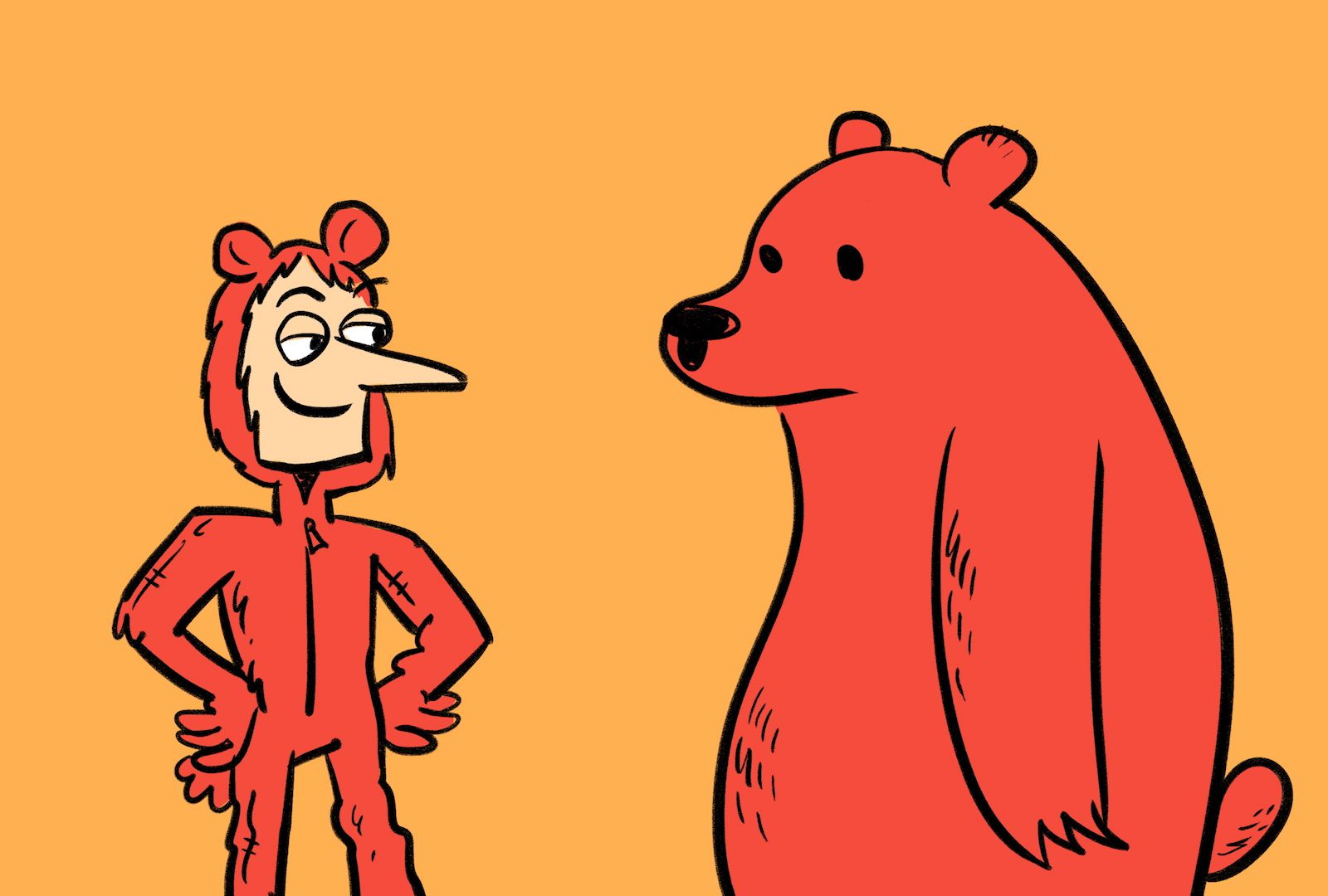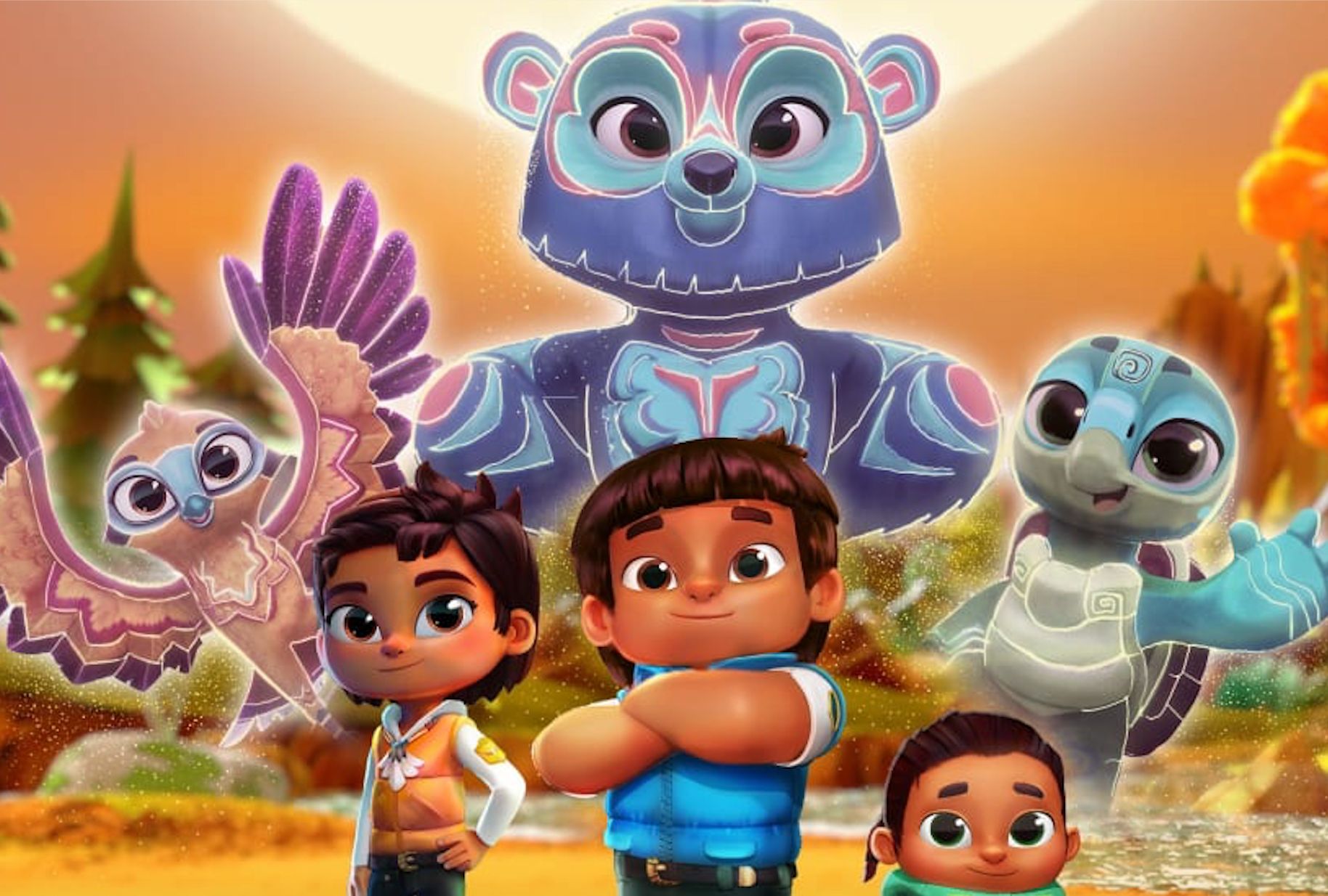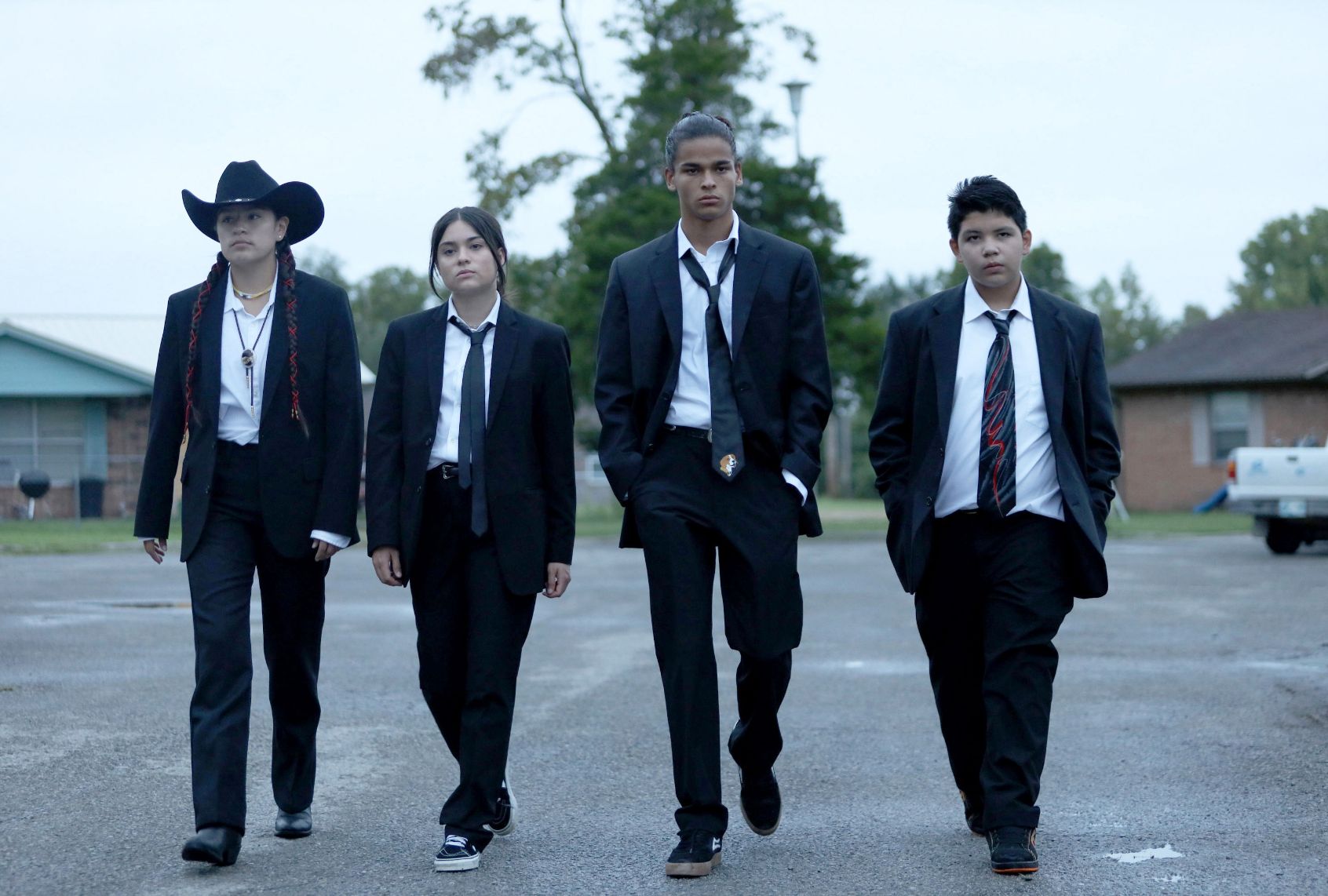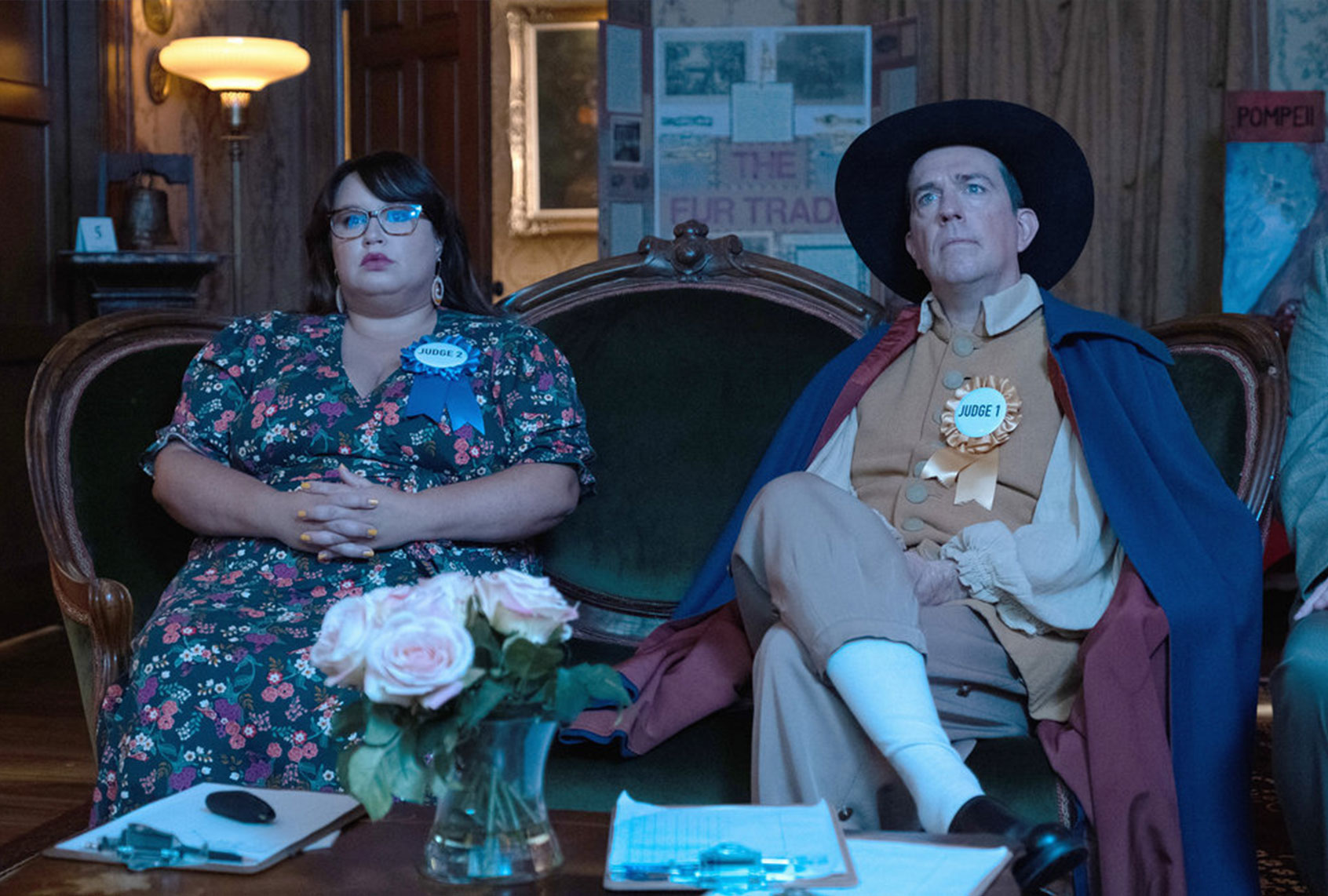On July 4, we’re expected to celebrate the holiday to mark U.S. independence from British rule. But for many Americans, that date in no way meant the end of colonialism.
“I grew up on the Bishop Paiute reservation, and we love the Fourth and fireworks there. We don’t love Independence Day, though,” TV comedy writer Tazbah Rose Chavez told Salon.
For Chavez – a member of the Bishop Paiute Tribe and from the Nüümü, Diné and San Carlos Apache tribes – the atmosphere of invigorated patriotism the holiday brings reminds her of the untold stories and propaganda entangled with these celebrations. “There’s a distinction, I think for all major holidays — the same way we address Thanksgiving. We like to eat, be with our family, celebrate, come together. But there is no acknowledgement we’re celebrating Independence Day.”
Writing for the comedy “Rutherford Falls” allows Chavez to address such tensions and dueling narratives while also having fun with the modern-day relationships some Native Americans have to history and identity. In the Peacock series, Reagan Wells (Jana Schmieding) is a proud member of the fictional Minishonka Nation and even runs a cultural center to honor her people. She also happens to be best friends with Nathan Rutherford (Ed Helms), a town historian who celebrates his white ancestor who “founded” the titular town of Rutherford Falls that was built on Native land.
In the series’ fifth episode, Reagan is thrilled to see the overlooked history of the Minishonka featured in a beautiful student film. She and Nathan are ready to declare it the winner of the student history fair . . . until Reagan discovers the documentarian is a white boy named Spencer.
“Knowing that the film was made by some white kid, albeit a seemingly woke one, I just gotta question his intent about making art about my people,” Reagan says.
As she investigates further, it turns out Spencer has a history of appropriating other cultures in cringe-inducing ways. His seemingly compassionate adoption of the Minishonka Nation’s story stems from white guilt and ultimately puts his face on a project about people he refers to as “the faceless.”
“We now live in this generation where non-Native people are becoming more conscious to Native issues,” Chavez said, on the episode. “But we haven’t been in a position to tell our own stories ever until very recently, so, in this episode, we really tried to look at the larger issues in narrative storytelling from historically excluded communities. There’s a new ownership Native people have over our storytelling now, because we have the agency and positions to do it.”
According to Chavez, the historical and continued erasure of Native storytelling in the U.S. has been entirely intentional. “It’s not just missing, like, ‘Whoops, we don’t know where it went!'” she said. “So much effort was given to erase the life and historical contributions and teachings of Native people.”
Like Chavez, Lucas Brown Eyes is a television writer who’s worked on a number of shows, including Freeform’s “Young & Hungry” and Netflix’s “Alexa & Katie.” As an enrolled member of the Oglala Sioux tribe, Brown Eyes also says he has a complicated relationship to Independence Day.
“I’m from South Dakota, so blowing stuff up and barbecue is kind of what [the Fourth of July] means to me,” he said, while also acknowledging, “The hard part is, especially when everything is ultra patriotic . . . our history has been erased. There’s all these moments of, ‘How can I celebrate when you’re not even acknowledging the pain you’ve caused?'”
That pain continues today as Native history and contributions continue to be ignored. The discovery of the burial of thousands of Indigenous children in unmarked graves near several North American schools has received little media attention. Today, celebrating the “freedom” of a country that’s able to perpetrate and whitewash such acts is a big ask, and those who can’t celebrate don’t necessarily lack for patriotism.
“Natives have loved this land before it was called America — it’s our homeland. Just because you’re Native American doesn’t mean you can’t be patriotic, but there’s this added layer of complexity,” said Brown Eyes.
Author and humor writer Tiffany Midge, an enrolled member of the Standing Rock Sioux, also shared her memories of the fraught “colonial holiday” with Salon.
“I’ve been at different reservations during different times of my life on July 4th, and people stayed up all night shooting off fireworks,” she recalled. “Were they celebrating Independence Day, though? I don’t know, maybe they were celebrating their tribal sovereignty.”
In her own way, however, she’s taken part of the Declaration of Independence, and reclaimed it for herself. Where the document refers to Native Americans as “merciless Indian savages,” Midge says she’s been inspired to call herself a “merciless Indian Fabulous.”
Comedy and the future of storytelling

“Telling People You’re Native American When You’re Not Native Is a Lot Like Telling a Bear You’re a Bear When You’re Not a Bear” (Joey Clift)
As with projects like “Rutherford Falls,” some Native American writers and comedians see comedy as an opportunity to tell their stories and a vital way to fill in the many gaps in knowledge about Native American cultures and history.
“I think the reason this stuff isn’t taught in schools is it runs counter to this narrative of American exceptionalism,” comedian and writer Joey Clift told Salon. “It’s really convenient to think the pilgrims arrived in this country, in this untamed wilderness hundreds of years ago, and these mystical, wood-elf Native American creatures emerged from the woods, gave them a nice turkey dinner, said, ‘All of this land is yours,’ then disappeared like force ghosts in ‘Star Wars.’ That’s a very convenient thing to believe if you want to believe America is the best country in the world.”
Clift, an enrolled member of the Cowlitz tribe who grew up on the Tulalip Indian Reservation, discovered his passion for comedy while chasing his first dream of being a “small-town cable weatherman.” But he’d never seen or heard of Native American comedians, and thus, didn’t believe he could be one. It was only after he received encouragement from several professors, and had his comedic talent recognized in a national college media competition, that he determined to pursue comedy beyond the occasional joke in a weather report.
Clift took his first class with the Upright Citizens Brigade in Los Angeles in 2010, and joined a UCBLA house team not long after, but it would be years before he was finally able to organize a Native American comedy showcase, which he had spent years pitching and pushing for. The showcase happened in 2018 after leadership changes, but before that, he had always been given reasons for why it couldn’t take place.
“The theater refused to give opportunities to other Native American comedians, and when I would try to make opportunities for other Native comedians, they would refuse to give them stage time because they weren’t vetted by the system,” he recounted.
But when it finally happened, the UCB Native American comedy showcase, which took place on Indigenous People’s Day, was wildly successful. “It was a sellout, we had maybe two dozen super funny Native comedians on the bill who all killed it,” Clift said. “That’s a show that took me five years of fighting to make happen.”
Clift just wrapped the first season in the all-Native writers’ room for the upcoming Netflix animated series “Spirit Rangers,” which follows three siblings who can transform into unique animal spirits while living and working at a National Park, and also created the award-winning short animated film, “Telling People You’re Native American When You’re Not Native Is A Lot Like Telling A Bear You’re A Bear When You’re Not A Bear.”

“Spirit Rangers” (Netflix)
He sees comedy as “one of the most effective ways to get messages for social change out into the world,” and also notes it’s “very easy to make fun of” everyday non-Native people’s ignorance about Native Americans. A short film of his that’s currently going through the festival circuit explores microaggressions and other memorable bits he’s encountered in relationships, highlighting the widespread “guilt and lack of education” on Native issues.
“I was in a relationship a couple years ago, and the woman I was dating woke me up in the middle of the night to apologize because when she was five years old her mom dressed her up as Pochahantas from Disney,” he recalls. “I was just like, ‘It’s fine, you can go back to sleep.'”
Tiffany Midge, the self-proclaimed “merciless Indian Fabulous,” has taken the writer’s route for her comedy. She’s a former humor columnist for Indian Country Today, and the author of several poetry collections, anthologies and her 2019 memoir, “Bury My Heart at Chuck E. Cheese’s.”
“Native writers have always written in a plurality of genres. They must have served as an example to me,” Midge said. “Humor is a great defuser of tension, obviously. It’s one of the best aspects of Indigenous traditions.”
Almost no topic is safe from Midge’s biting humor and wit, and one she’s explored at length, from her writing on Women’s March pussy hats in her memoir, to some white women activists’ obsession with “The Handmaid’s Tale,” is white feminism. While she wouldn’t necessarily call white feminism “evil,” she’s critical of the way white women have often centered themselves in feminist activism, overlooking the specific oppressions of Indigenous women in the process.
Midge recalls facing backlash when she wrote a satire piece on “The Handmaid’s Tale.”
“I received a lot of vitriol from white women about the audacity of me to decenter their (fictional) narrative, and claim space for the horrific reality experienced by Indigenous women,” Midge said. “But it was my hope to find some healing for Indigenous women by punching up on white feminism through use of jokes and satire in that piece.”
Meanwhile, Chavez only realized she was “actually a comedy writer” some time after joining the writing staff of “Rutherford Falls,” when showrunner Sierra Teller Ornelas told Chavez she was funny. “I was like, well, two showrunners have told me I’m funny at this point, I keep finding myself writing on comedies — I think I’m a comedy writer,” Chavez recalled.
Since then, however, she says she’s struggled with walking “this tightrope” of how Native comedy can be highly effective at educating people about Native issues, while also acknowledging it shouldn’t always be on her and other Native American writers to educate non-Natives.
“We don’t want to be perpetual teachers. There’s so much information out there people have access to, they just don’t have the willingness to take themselves there,” Chavez said. “So it’s walking this fine line between not feeling like we constantly have to spoon-feed and educate with every story we tell, and every funny thing we do has to be teaching people, while also recognizing people are starting from a very low baseline of information, and if we don’t fill in those gaps, no one else will.”
But Chavez is hopeful that with more time, storytelling, and comedy, more people will have the “education and awareness,” so that Native American writers can tell whatever stories they want to tell. “I want us to be able to have romantic comedies someday that have nothing to do with being Native, and the character will be Native, the choices they make, or the way they talk, the way they go about the world, may be Native,” she said. “But I don’t want us to constantly stay in this place of having to be educational content, because that’s not what white people have to do.”
Clift is similarly hopeful about the different directions Native American-centric storytelling and entertainment may go in the future. “Yes, it’s important to be educated about the true history of this country as it relates to Native people, but it’s also important to support Native creators nowadays, the future of Native storytelling,” he said. “Supporting the future of Native storytelling is just as important as learning the history of the Native experience in this country. So, while you’re educating yourself about that stuff, follow a bunch of Native American comedians on Twitter. We’re super funny, I promise.”
New storytelling centers Native joy and youth

“Reservation Dogs” (FX on Hulu)
Brown Eyes moved with his mother from South Dakota to “Hollywood!” (or Santa Ana, but close enough) when he was 13, after a family tragedy. On one of their first days in the state, he recalls his mother pawning her jewelry so they could buy him a video camera, and he could make an audition tape for the nearby art school, all in one day. The investment certainly paid off; Brown Eyes has been working in TV for years, and is currently writing on an upcoming HBO Max show.
While some of the previous projects Brown Eyes has worked on haven’t featured Native characters, he sees “honesty and authenticity” as universal, and crucial to his writing. “If you write these real, multidimensional characters, people will relate to them no matter who they are,” he said.
His current project at HBO isn’t a comedy, and Brown Eyes has big dreams of writing for every genre there is at some point. But comedy has a special place in his heart. “That’s how I got started, and I’d say when you’re Native, there’s this stereotype of the stoic serious Native — that’s the dumbest stereotype I’ve ever heard,” he said. “It’s the complete opposite. There’s so many Natives who are jokesters, kind of silly, constantly joking. Part of that is just cultural, of when you’ve had such a rough go of it, everyone is telling you no, you can laugh or cry. Many of us choose to laugh.”
Chavez similarly finds the stereotype of “stoic, old Native men from black-and-white photos” is inaccurate, and will push against that with her new FX on Hulu series “Reservation Dogs,” premiering in August. “I’m so excited for people to see how vibrant, funny and alive our communities are contemporarily,” Chavez said. “I’m really, really excited for people to laugh with us and find joy in our storytelling and our existence.”
“Reservation Dogs,” created by Sterlin Harjo and Taika Waititi, is the first show of its kind, emerging from an all-Native writers’ room. Where Chavez says “Rutherford Falls” has a built-in white storyline and is true to the existence of white and Native people living together on reservations across the country, “Reservation Dogs” is completely different, focusing on the everyday, hilarious lives of Native American teenagers on a reservation.
“At different times writing this, we had to stop and go like, ‘Wait, is this too specific? Are we getting so specific no one’s going to know what we’re talking about?'” Chavez said. But actually, she says this specificity is what makes it more universally relatable, including to non-Native people, who will see the parallels in their own lives: “They’ll be like, ‘Oh, that’s like when I go to this place in my town with my people.'”
Similarly, Clift looks forward to the release of “Spirit Rangers,” next year, hoping his show about a Native family and kids will “open kids’ eyes to just a bunch of fun Native kids who go on the same adventures other kids do, experience the same joy and emotion, and they’re not entirely reliving Native trauma every episode.”
“[‘Spirit Rangers’ is] about Native joy, and Natives flourishing and living their best lives,” Clift said. “My hope is when all of these new shows come out, and are successful, it’s going to tell Hollywood that authentic Native stories, that center Native voices and not the white gaze, are important stories to tell. They’re also great stories to tell, interesting, cool, funny, and yes, profitable.”
“Rutherford Falls” is currently streaming on Peacock. “Reservation Dogs” premieres Aug. 9 on FX on Hulu. A premiere date for “Spirit Rangers” has yet to be announced.

